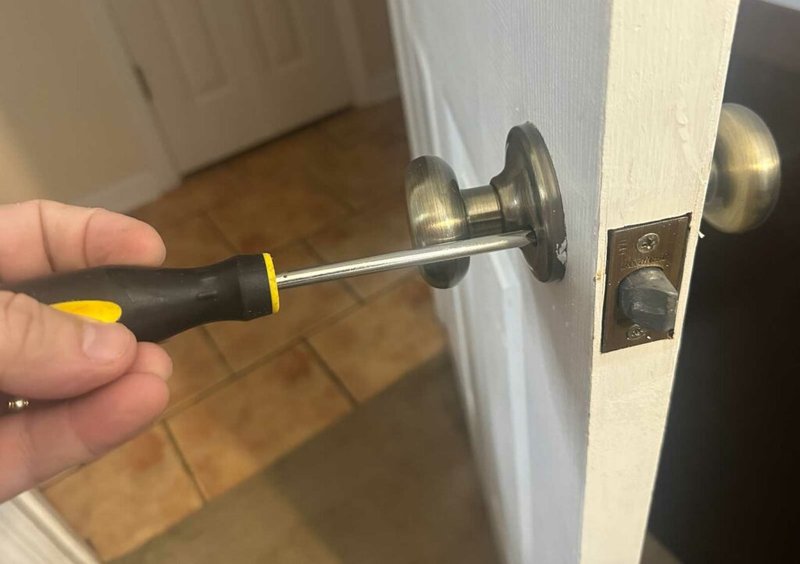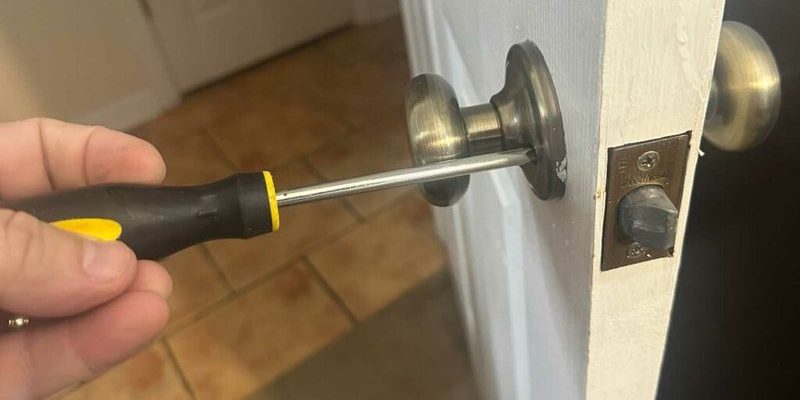
Let’s dive into this pesky issue. A gritty feeling in your door latch can stem from a few common causes, whether you’ve scrubbed it with soap and water or wiped it down with a cleaner. Understanding the mechanics behind it can help you keep that latch functioning smoothly and efficiently. After all, a well-maintained door latch can make a huge difference in how easily your door opens and closes.
Understanding Door Latches
Before we tackle why your door latch feels gritty, let’s quickly break down what a door latch is and how it works. Think of it as a tiny but mighty mechanism. When you turn the doorknob, the latch retracts, allowing you to open the door. Once closed, the latch engages in a strike plate, keeping your door secure.
Door latches come in various styles and materials. Some are simple, while others are more complex, integrating electronic elements or added security features. Regardless, the basic principle remains the same: they need to move smoothly for your door to function properly. If something disrupts that smooth motion, you might end up with a gritty feel.
So, what can cause this texture after cleaning? It’s time to explore the potential culprits.
Residual Cleaning Products
After a thorough cleaning, sometimes residue from the cleaning products can remain on surfaces, including your door latch. If you used a cleaner, like a spray or a heavy-duty soap, and didn’t rinse it off completely, it can leave behind a film. This residue can mix with dust and grime, creating that gritty sensation.
Here’s a handy tip: always follow up a cleaning with a damp cloth to wipe away any remaining product. It’s like giving your latch a final rinse—ensuring no residue is left behind. This small step can save you from future frustrations when turning that doorknob.
Dust and Debris Buildup
Another reason your door latch might feel gritty is the buildup of dust and debris. Even after cleaning, microscopic particles can settle in nooks and crannies. When you move the latch, these particles create friction, leading to that rough texture you’re feeling.
Regular maintenance can help keep this problem at bay. A quick wipe-down every few weeks can prevent dirt from accumulating. Think of it as giving your latch a spa day every now and then. A little upkeep goes a long way!
Lubrication Issues
Now, let’s talk about lubrication. Just like a car needs oil to run smoothly, door latches often require lubrication to function well. Without it, the moving parts can grind against each other, causing that gritty feeling. Cleaning can sometimes wash away the lubricant, making it essential to reapply it afterward.
To fix this, apply a small amount of lubricant, like silicone spray or graphite powder, to the latch mechanism. Just a little goes a long way! Make sure to wipe away any excess to avoid attracting more dust in the future. Remember, a well-lubricated latch will glide with ease, making your door feel brand new.
Corrosion or Rust Formation
If your latch is made of metal and feels gritty despite cleaning, you might be dealing with corrosion or rust. Moisture can cause metal to oxidize, leading to a rough texture. This situation can be tricky; while cleaning might improve aesthetics, it won’t fix underlying corrosion.
To address this, inspect the latch closely. If you see signs of rust, you may need to use a rust remover or sandpaper to even out the surface. After cleaning the corrosion, be sure to apply a protective coat of lubricant to prevent future rusting. It’s like putting on sunscreen before heading out to protect your skin!
Choosing the Right Cleaning Products
Choosing the right cleaning products matters just as much as cleaning technique. Some cleaners might be too harsh and could damage the latch finish, leading to that gritty feeling. Opt for gentle, non-abrasive cleaners that won’t leave residues.
Also, avoid cleaners with heavy chemicals if you can. They can leave behind residues that contribute to a gritty feel. Look for products designed specifically for metal surfaces, as they’ll ensure a thorough cleaning without the drawbacks of harsher chemicals.
Regular Maintenance: The Best Preventative Measure
Now that you understand the potential reasons behind a gritty door latch, let’s highlight the importance of regular maintenance. Think of it as nurturing your latch—keeping it clean, lubricated, and free of debris will ensure it stays functional over time.
Incorporate these simple steps into your routine:
- Wipe down the latch every few weeks with a damp cloth.
- Reapply lubricant after cleaning.
- Inspect for rust or corrosion and address it immediately.
- Use appropriate cleaning products for metal surfaces.
Consistent care will prevent that gritty feeling and ensure your door latch operates smoothly.
When to Seek Professional Help
Sometimes, despite your best efforts, a door latch might still feel gritty or refuse to operate smoothly. If you’ve cleaned, lubricated, and inspected, but nothing improves, it could be time to call in the professionals. This is especially true if the latch is part of a more complex locking system or if you suspect more significant issues.
A professional can offer insights beyond what you might notice, ensuring your door functions optimally. They might also recommend replacement parts if necessary. Remember, it’s better to tackle an issue early than to let it develop into a more significant problem.
In conclusion, a gritty door latch after cleaning can stem from several factors, including residue from cleaning products, dirt buildup, lubrication issues, and corrosion. By following a regular maintenance routine and addressing issues promptly, you can keep your door latch functioning smoothly. A little care goes a long way in making your door work as it should, enhancing your home’s security and comfort.
